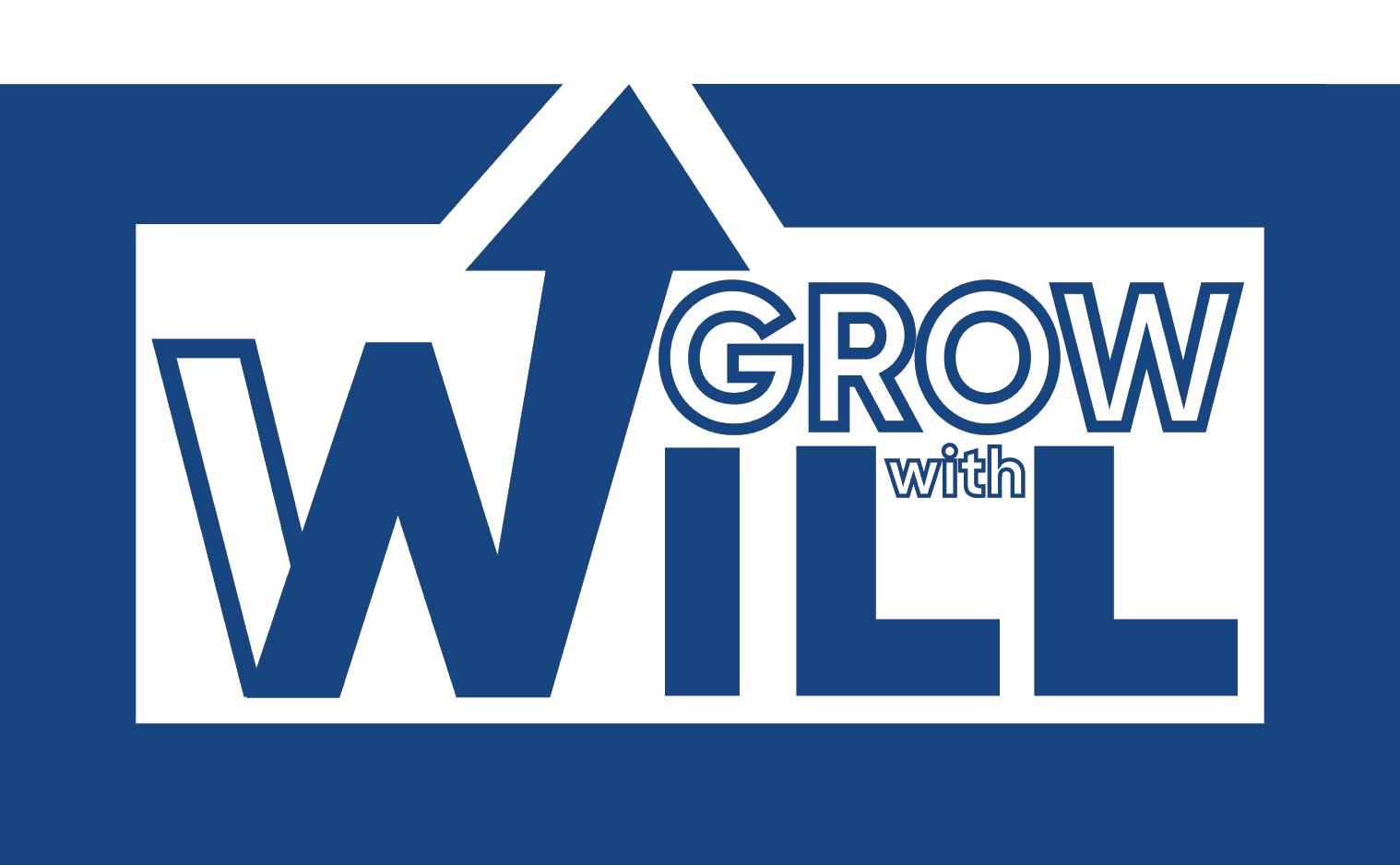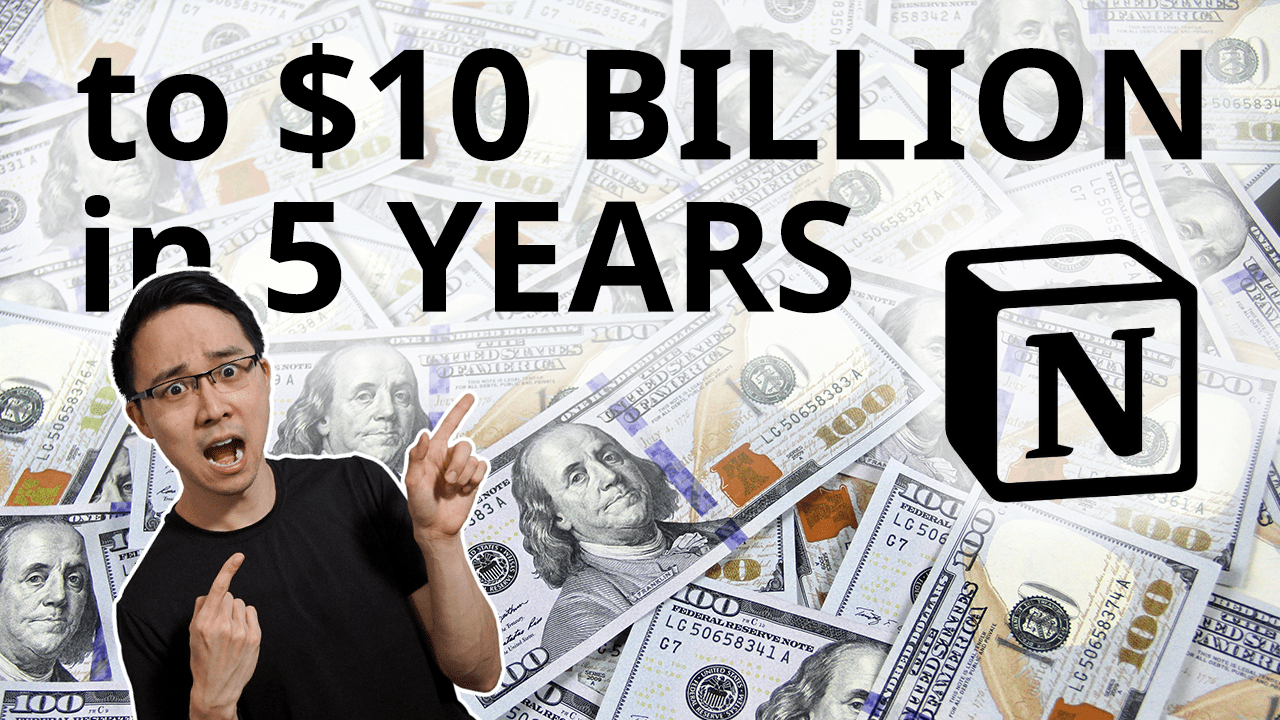Notion recently hit a $10 billion valuation. So in today’s article, we’re going to be digging into three digital marketing strategies that they use to help them reach their success so quickly. By the end of this article, you’re going to be able to take these three digital marketing strategies and apply them to your own business or side hustle.
Strategy 1: Sell benefits, not features
The first digital marketing strategy that Notion does really well is selling benefits as opposed to selling features. When you visit their website, you immediately can start to see how they use this strategy. Digging right in, what we’ll see is that everything on this page is not necessarily talking about specifically what Notion does as a feature set, but actually how it’s going to benefit their end user.
So in this case, you can see how they’re talking about it’s all about one workspace for every single team and how we team up without the chaos, never asked what’s the context again, build the workflow you want. And every single one of these major sections on their websites essentially cover the benefits to the end user, as opposed to just talking about the features in the actual product itself.
What’s also really nice is that as they’re talking about these benefits, they demonstrate to the user how their product solves this problem. So instead of having to actually describe the features, they just show the end user how they might see this particular problem getting solved within Notion.
Aside from this homepage, Notion also applies this in all of their marketing pages. In fact, if you just take a look at the header here under solutions, everything is oriented around the user where they’re focusing on things based off of team size, by team function, as well as Notion for key pockets of users. So here you can see that team size breaks it down by enterprise, small business, and personal and team function breaks down by design, engineering, product, and managers.
Whereas the final section digs into common groups like startups, remote work, non-profits, and education. And what’s really cool is that as you actually dig into each of these pages, the copy reflects the target that they are trying to acquire in terms of core user. As we visit this enterprise page, we see how Notion is talking about how it applies to enterprise applications across an entire company. You see how they start to position their pages around some of the bigger enterprise companies that are already using them. And then you also see how they, again, integrate their product as the solution and speak to the benefits of the product in which they talk about where Notion is where knowledge and everyday work meet and index for everything you need and so on.
So these are the sorts of ways that Notion has been so effective in terms of writing towards the benefits, as opposed to just simply stating the features of their product.
Strategy 2: Focused on scalable product marketing
The second strategy that Notion use so effectively in order to reach their $10 billion valuation is making scalable product marketing. As we navigate back to Notion’s website, there’s a top navigation under product that’s called template gallery. And this is a great example of what a company can do to reduce the amount of time that it takes for somebody to reach a value point and connection of how their product can potentially help their prospective user.
So what Notion is doing here is they’re providing a ton of different templates of different ways that people can use their product. They have sections based off things like what people can do in the startup world and HR and people ops, students and nonprofits, and they have all these different templates that give you actual examples of how their customers are using Notion to solve problems that these different groups of users often face.
The reason why this is really powerful is because it actually makes it clear to the potential user exactly how they might use it in their own world. If I, for example, am similar to Mixpanel and I’m running a daily stand-up or task meeting, I might use this actual template in my own company.
Similarly, if I’m starting to build out a jobs board, I might take a look at this multi-verse example of a job board to see exactly how I might be able to build a job board in notion, as opposed to having to code up an actual page or use an applicant tracking system somewhere else.
By creating this sort of laundry list of templates that people can use, Notion is really reaffirming that point that they made on their marketing page of Notion being able to be used for a lot of different applications. Furthermore, though, what’s really great is that all of these guides and tutorials are centered around things you can do with the tool. Aside from this template gallery, if we actually go back to Notion’s website, what we’ll see is that they also have a section for customer stories.
And all of these customer stories are talking about exact ways that real businesses or real users of Notion are using their product. And this is something that is really, really powerful, because essentially when you have all these different personas, like heads of growth, CEO, and its co-founders, senior people, ops managers, and so on talking about the different ways that they use your product, it allows you to find the pocket of users that resonates with and then essentially speak to them.
So another CEO that stumbled upon that CEO customer story is going to probably feel like that particular customer story resonates with them stronger than if they were to read the one by the head of growth and so on. This is something that they apply across all of their content and product marketing.
In fact, when you even go to their blog, what you’ll end up seeing is that it’s written by different members of the Notion team ranging from the engineering team, to the marketing team, all talking about different ways that they use Notion. So everything centers back to getting the potential reader thinking about one thing, and one thing only which is how can I start to use Notion? And that becomes really, really powerful because it leads us naturally to strategy number three.
Strategy 3: Investing and building around empowering community
The third strategy that Notion has used so effectively in scaling their brand, as well as their user base is investing and building around empowering their community. Something that you may or may not have noticed when I dug into the template view earlier is that Notion actually has a place in which you can actually share with them how you’re using Notion. And what it leads to is a redirect of a tight forum where you can talk about the different ways that you’re using Notion.
However, this is really just the tip of the iceberg. User centricity is something that’s at the core of Notion and it all comes full circle because when you think about it at the top of the funnel for the marketing team, when they are telling somebody about all the different ways that people use Notion, they’re getting the potential user excited about using Notion.
And then when that user actually realizes that benefit of what they were marketed, as they download Notion as a tool, they become really excited about sharing their win with other people on their team, as well as other people in their professional network that might do similar work to them. And so it all comes full circle in which this network effect grows for each user helps Notion acquire the next user. And it’s this user centricity approach towards all of their product marketing and their content marketing that becomes this great flywheel for them. And there’s really no better way to demonstrate this than to take a look in YouTube for all the different creators that have talked about different ways that they use Notion.
In fact, if we just dig into YouTube and search for Notion, you’re going to see all of the different creators that have talked about Notion. So these are folks that sometimes have been sponsored by Notion, but other times have just spoken out of great love for the product and are creating these free videos around Notion.
So you can imagine that all of this really stems from that template gallery inspiring the initial ideas for these creators to think about ways that they can use Notion in their day to day lives. This is really, really powerful. And when you can create this sort of network effect, it becomes free marketing for you.
To really prove out that Notion’s done a phenomenal job at empowering their community, what you can do is you can actually check out their site on SimilarWeb. And what you’ll see is that their traffic has continued to grow, even though they have 103 million visits a month. In fact, when you dig into the traffic sources, you’ll see that most of their traffic is coming from direct, which means that people are actually typing in the URL for notion.so when they are hearing about it.
Furthermore, when you dig into the breakdown of the actual search traffic itself, 87% of it is organic and the bulk of the phrases are all branded terms around Notion. So this just goes to show you how investing deeply in your community when you’re building this sort of wide application product can be super powerful for your company.
Furthermore, when you dig into the social side of things, you can see that 49% of the social traffic can be attributed to YouTube. And that makes sense because YouTube is the most visual format of showing something like Notion in action. But aside from that, you’ll see that there’s other community areas where people are talking about Notion like Twitter, Reddit, Facebook, and even LinkedIn.
What Notion has done so effectively is realized that their product is incredibly sticky and uniquely personal to each user. So they essentially spend the bulk of their time educating their users on all the different creative ways they can use the product so that what they can do is they can then advocate for Notion because they’re so excited about the wins that they themselves have realized from benefiting in using the product.
There’s a lot of other strategies that Notion has used over the years to build up their brand. But I think these are three of the digital marketing strategies that were really most effective for them.
If you liked this article, be sure to check out my YouTube channel to get new videos every single week. I’ll help take you from zero to self-starter as you grow your business, get more customers, and hone your business acumen. Also, feel free to share this with anybody that you think might benefit from learning tips how Notion used these three digital marketing strategies that help them grow.

